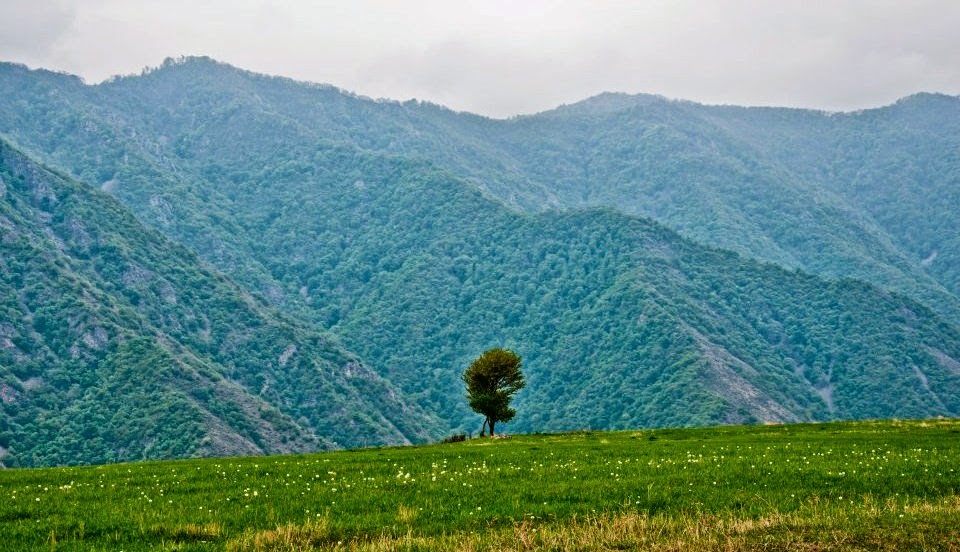The story of our lives or the year that was...
It's hard to fathom that it's that time of year again. It feels like it was just yesterday that I packed away all the Christmas decorations.
Where did the year go?
The sheer magnitude of events that shaped the story of our lives in 2015 was intense, exhilarating, tragic, beautiful, unexpected; it was a year that will be stuck in the membranes of our memories...
It seems as if a whole lifetime was squeezed into a mere 12 months.
Just a few days after ringing in the New Year, clashes on the border with Azerbaijan erupted resulting in uncertainty and death. Just as we were recovering from the early onslaught, a horrific tragedy in Gyumri struck a blow to the entire nation. In a gruesome multiple homicide, the Avetisyan family was murdered by a Russian soldier while they slept. The family's sole surviving infant, Seryozha struggled to live but he succumbed to his injuries a week later. And when he drew his final breath and passed, a whole country mourned, our hearts were broken. Remembering him now, almost ten months later still moves me to tears...
Life went on. The Armenian people prepared for the centennial of the 1915 Genocide. The Kardashian family came to the homeland, Kanye West performed a free concert for residents of the capital, the Pope gave a Holy Mass where he called the Armenian Genocide the first genocide of the 20th Century, the European Parliament once again called on Turkey to come to terms with its past, a number of parliaments recognized the Genocide, communities across the globe honored their dead and demanded justice and recognition...
Presidents and dignitaries came to Armenia, the world focused on the issue for about a millisecond, millions of dollars were spent. April 25th came, much didn't change, but life went on.
A few months later, Electric Yerevan electrified the country for several weeks. The world's attention, once again, focused on Armenia. We were inspired, invigorated and hopeful. Tired of a system that was failing us, we hoped that a movement led by new young voices would usher in some kind of fundamental change. While it was successful in illustrating the power of the people, the people still have a long way to go before believing that that power can be the engine for real change. The movement fizzled out, people went back to their normal lives and routines. Life went on.
A referendum on constitutional reforms was held. While it's likely that the majority of the population voted against it, the regime successfully orchestrated yet another rigged vote and thus it passed. Citizen observers did their best to protect the integrity of the vote but they were too few in numbers. We reported about it, wrote about it, griped about it. Life went on.
And in between all of these events, the borders of our country were uneasy. No, they were tense. We lost so many young men, boys really, too young to have experienced all that a blessed life could have offered them. We didn't always give them names. We just simply said, Did you hear? We lost two soldiers today on the border. But they had names. They had mothers and fathers who loved them beyond measure. They had wives and children, and friends and community. Each death struck a blow to each little civilization that gave birth to them and raised them.
While presidents meet and mediators try to mediate, the soldiers and their families are paying a price for us, for our safety and security and we don't do nearly enough to honor them.
What about the ongoing conflicts in other parts of the world? What about the crimes of humanity that are playing out in real time on our computer screens? The tens of thousands of refugees yearning for a better life, risking everything by crossing borders and seas and dying and drowning in the process? The image of the little boy's body washed up on a Turkish shore that will forever be etched in our minds...
Tomorrow as I decorate that 30-year-old Christmas tree that has been a witness to so many precious memories, I will remember the past year and I will be grateful.
Grateful for all that we experienced. Grateful for the moments of illumination and the depths of despair because it shaped our collective existence, gave it form and texture and depth. Grateful for the youth of this country, who still believe that change is possible. Grateful to be surrounded by incredibly motivated people, for community and grateful to have the privilege of living in my homeland with my family.
Most of all grateful for Shahen, an amazing little human being in his own right and a blessed addition to our little civilization. In a few short months, Shahen will have a baby brother. They will grow up together, play together, go to school, make friends, fall in love and when the time comes, they will both serve in the army to protect the borders of our country. And while that thought terrifies me, it also increases my resolve to work harder, be better, do more...so that they can grow up in peace.
May 2016 be full of blessings for all of us -- may we love more, play more, read more, enjoy life more, believe in our own possibilities and above all else, may we finally find peace and serenity in our lives.














.JPG)